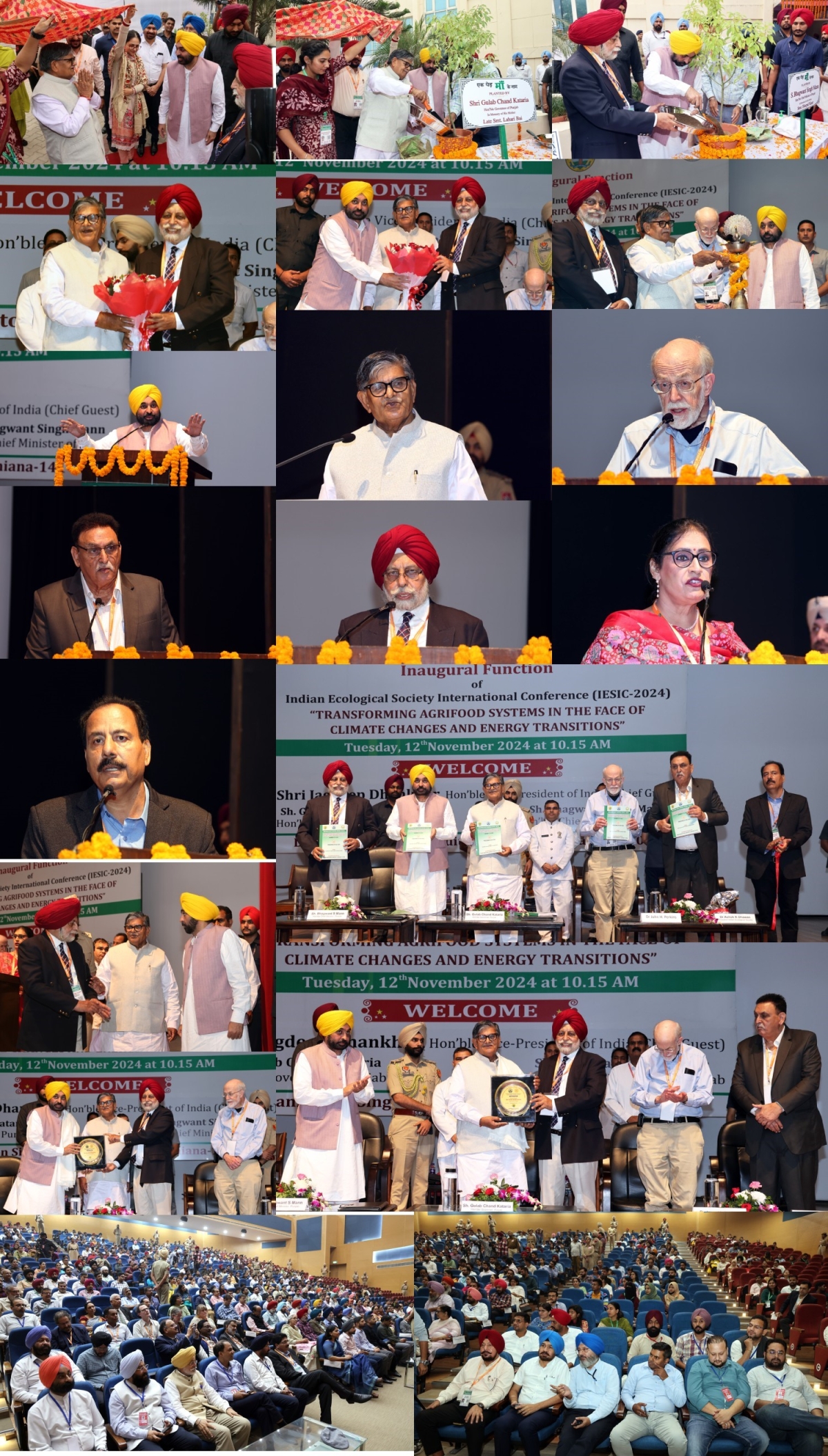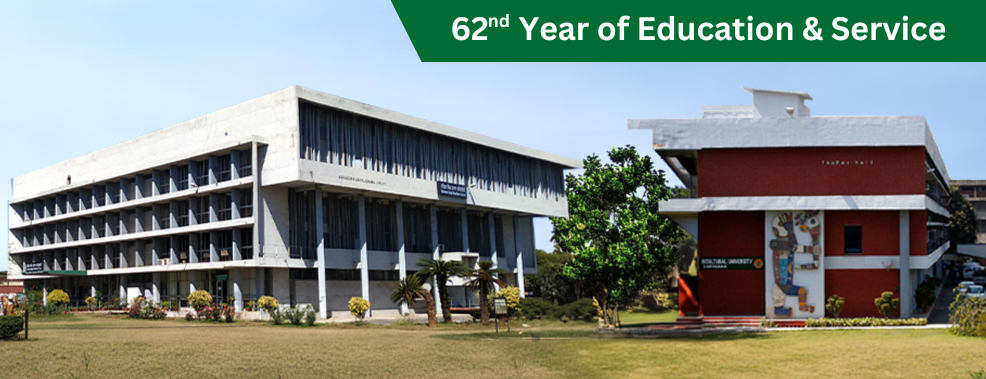62nd Year of Education & Service
PAU HOSTS INAUGURAL SESSION OF INTERNATIONAL CONFERENCE ON CLIMATE-RESILIENT AGRIFOOD SYSTEMS, FOCUSED ON SUSTAINABLE SOLUTIONS
12-11-2024

Punjab Agricultural University (PAU), in collaboration with the Indian Ecological Society, inaugurated a landmark four-day international conference titled “Transforming Agrifood Systems in the Face of Climate Changes and Energy Transitions.” Held at the Dr. Manmohan Singh Auditorium on the PAU campus, the event brought together prominent scientists, scholars, policymakers, and international experts to discuss sustainable, climate-resilient strategies for agriculture and food security.
The inaugural session featured Hon'ble Governor of Punjab, Shri Gulab Chand Kataria, as the Chief Guest, with Hon'ble Chief Minister of Punjab, S. Bhagwant Singh Maan as the Guest of Honour. The session emphasized the university's commitment to advancing sustainable agricultural practices and addressing climate change impacts on agrifood systems.
In his address, Governor Shri Gulab Chand Kataria advocated for comprehensive support for farmers, focusing on solutions rather than attributing blame. He called for providing farmers with alternative, sustainable crops and additional machinery to manage crop residue effectively. He also emphasized the role of solar energy and proper waste management practices for industries to mitigate environmental impact while preserving economic stability.
Hon'ble Chief Minister Shri Bhagwant Singh Maan commended PAU for its leadership in sustainable agricultural practices and emphasized the importance of technology and knowledge-sharing in adapting to climate challenges while supporting rural communities. He also urged scientists and policymakers to explore climate-adaptive farming methods, stressing the need for crops that consume less water to preserve Punjab’s precious natural resources.
Leading an international delegation, Dr. John Perkins from the United States offered insights into the global impact of climate change on agriculture, underscoring the need for innovative, visionary frameworks to drive sustainable solutions. Dr. Perkins expressed optimism for the collaborative discussions and knowledge exchange set to take place over the next few days.
In his address, Dr Ashok Dhawan, President of the Indian Ecological Society, outlined the Society’s golden jubilee achievements and highlighted the conference’s focus on achieving food security, productivity, and ecological balance.
Earlier, PAU Vice Chancellor Dr SS Gosal formally welcomed the gathering, expressing gratitude to the dignitaries, including the state Governor, Chief Minister, and global delegates, reiterating PAU’s ongoing commitment to sustainable agricultural advancements and its mission to lead India’s agrarian sector toward climate resilience. Dr Gosal applauded the Chief Minister of Punjab, Shri Bhagwant Singh Mann, and the Hon'ble Governor of Punjab, Shri Gulab Chand Kataria, for their proactive support of sustainable agriculture, positioning PAU as a model of agricultural transformation and innovation.
During the inaugural ceremony, dignitaries released the conference proceedings and a commemorative souvenir. Among the notable attendees were Vice Chancellors of SKUAST Jammu and GADVASU, as well as deans, directors, department heads, faculty, and students from PAU and GADVASU.
With distinguished scientists from international organizations—including the International Maize and Wheat Improvement Center, Harvest Plus, the Alliance of Bioversity International and CIAT, and the French Research Institute for Sustainable Development—sharing their insights, the conference aims to foster collaborative solutions for climate-smart agriculture. The agenda includes a special symposium and workshop, supported by the National Science Foundation, USA, where experts will address pressing agricultural issues and explore innovative research and teaching frameworks.






